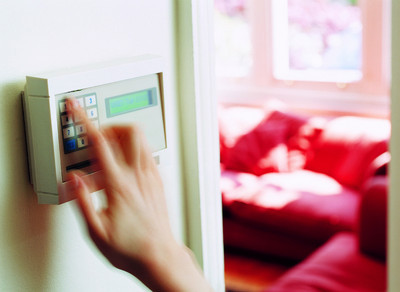Take charge

Sometimes it really is the little things in life that make a big difference.
Take your home’s thermostat, for example. A simple 1 degree Fahrenheit change — regardless of whether it is for heating in the winter or cooling in the summer — can save 2 percent on your energy costs.
"I try to empower the customers, so they can take charge of their bills — even if cost of electricity goes up, there is stuff we can do so we use less of it so the bill can go down," said Greg Kern, director of customer renewable generation and energy efficiency for Nevada Energy.
And the thermostat is the first place to start. According to Kern, most of our energy dollars are spent on heating and cooling our homes.
"We usually suggest that in winter people set their thermostats to 68 F and if they’re cold, to put on a sweater. It’s the classic conservationist way to go. My next suggestion would be for both conservation and energy efficiency. Get a programmable thermostat."
Kern said the programmable thermostat allows homeowners to change the temperature inside their homes automatically. So, when you go to bed or leave the house for the day, the temperature can be lowered to 65 F or 64 F. When you are at home, awake and active, the thermostat can be set to raise the temperature.
"That’s the beauty of a programmable thermostat. You set it and forget it."
Although a majority of homeowners use gas to heat their homes during winter, Kern says his tips are created to help people save energy and money year-round.
Kern, a self-proclaimed energy geek, also cautions consumers to be aware of the difference between conservation and efficiency. While in the long run, both will result in energy savings, there is a slight distinction.
"Conservation is when you have a light by your bed on a nightstand and you like to read for three hours, and then you go to two hours to save energy. Energy efficiency is putting in a better light bulb and still reading for three hours. Or, conservation is when you turn your thermostat down from 68 F to 72 F, but if you put in a better programmable thermostat it is more efficient," he said.
"We do both at my house. Me walking around telling the kids to turn off the lights is conservation, but we also do energy efficiency. We have all compact fluorescent lights. There are no incandescents. And we do still turn the lights off."
Kern said he likes to make the distinction because most energy efficiency programs have a slight cost and don’t change people’s habits, while conservation efforts are a "behavioral thing" and are cost free to implement.
One such thing is to take advantage of the free energy provided by the sun each day.
"Whenever possible, open the windows that face south, west and even east. Let that passive solar heat come into the house.
"I have two rooms in my house and those rooms are hot. They turn into little free furnaces. In the summer, it’s the exact opposite. There’s not a ray of sunshine in there."
For homes that have solar screens to reduce the amount of sunshine entering the home in the summer, he suggests removing them in the winter, if possible. "If it’s too much to take them off, at least open the window shades and let through what you can."
Other steps to reduce energy use include making sure all windows and doors are properly weathers tripped and caulked ("The average 10-year-old house has the equivalent of leaving a window halfway open."); change furnace filters regularly ("Dirty filters make the furnace/air-conditioning unit work harder."); keep exhaust fans turned off when not necessary ("You’re dumping all that hot air out the chimney."); and insulate the attic ("It’s like putting a big blanket over the top of your house.").
Kern also recommends switching out traditional incandescent light bulbs for compact fluorescent lights. This will typically save $1 per bulb changed out, for bulbs running four to six hours per day. In the summer, it also reduces the amount of heat in your home because incandescents generate heat to produce light.
For those who want to learn more about ways to reduce their energy use, Nevada Energy offers an online energy audit program. Begun a few months ago, the audit individually evaluates each person’s electricity and gas usage (from data input by the user and their electricity and gas bills) and shows how it compares to an average household as well as offering suggestions on ways to reduce usage.
"Once you put all your data in there, it will give you a super in-depth audit of your house and will offer suggestions," Kern said.